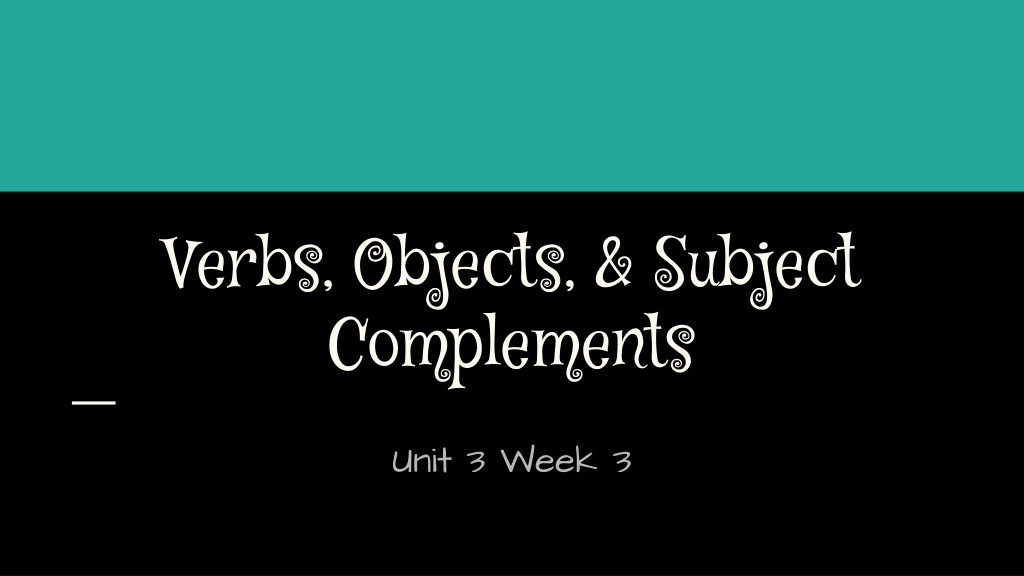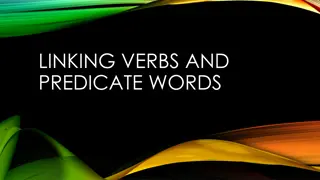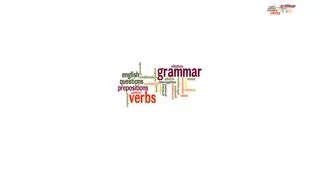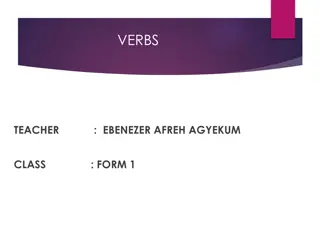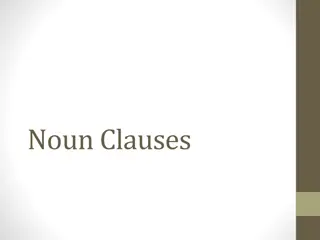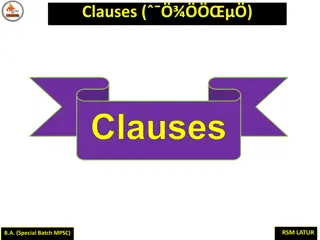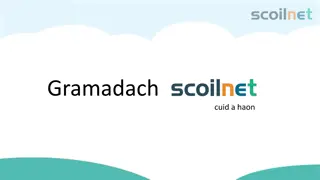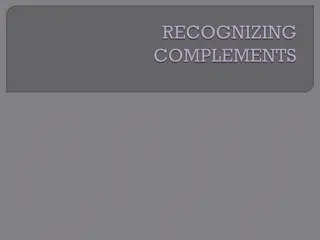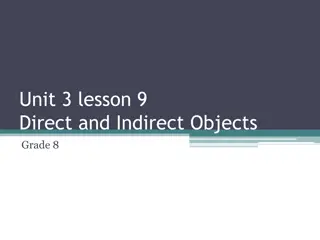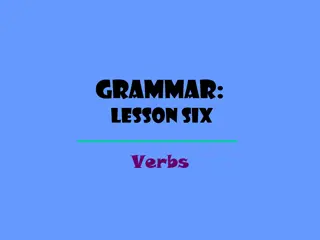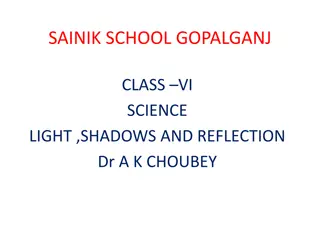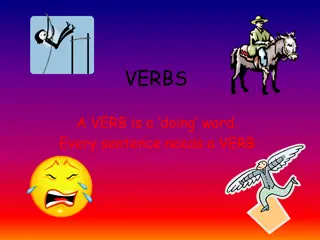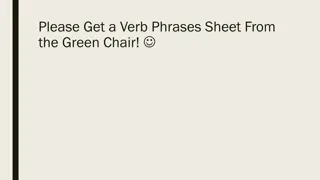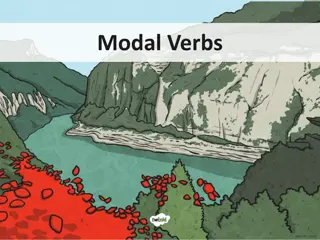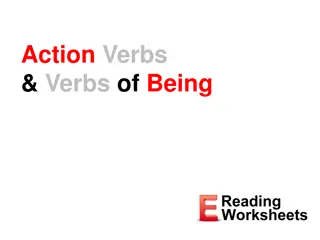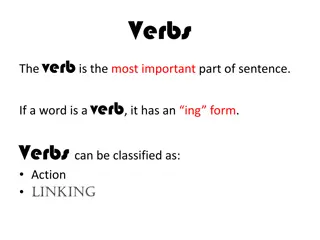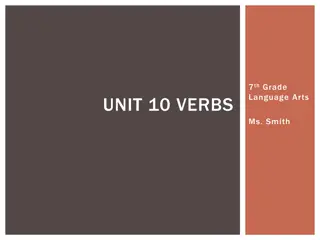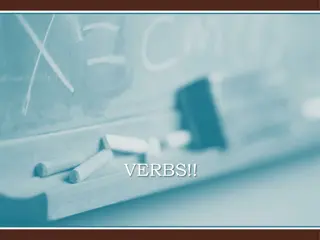Understanding Verbs, Objects, and Subject Complements in Grammar
Learn about direct objects, indirect objects, and subject complements in grammar. Direct objects receive the action of the verb, while indirect objects indicate to whom or what the action is done. Subject complements follow linking verbs and describe or identify the subject. Examples and images are provided to aid in comprehension.
Download Presentation

Please find below an Image/Link to download the presentation.
The content on the website is provided AS IS for your information and personal use only. It may not be sold, licensed, or shared on other websites without obtaining consent from the author. Download presentation by click this link. If you encounter any issues during the download, it is possible that the publisher has removed the file from their server.
E N D
Presentation Transcript
Verbs, Objects, & Subject Complements Unit 3 Week 3
Direct Object A direct object direct object follows an action verb and tells who or what receives the action of the verb. Examples: Chris told a secret. (told told is the action verb; secret secret is the direct object) Tim kicks the ball. (What did Tim kick? What received the action?) Shannon painted a picture. (Shannon is the subject. What did she do? What received the action?)
Indirect Object An indirect object indirect object follows an action verb and tells to whom or what the action of the verb is done. *Indirect objects come before before direct objects. Examples: Chris told Bill a secret. Chris Chris is the subject. Told told something... Secret Secret is the direct object. Whom did Chris tell the secret to? to? Bill Bill is the indirect object. Jenny gave Doug a pencil. Jenny Jenny is the subject. Gave did she give and to whom did she give it to? did she give and to whom did she give it to? Direct = pencil Indirect = Doug Told is the action verb. Chris Whom did Chris tell the secret Gave is the action verb. What What
More Indirect Object examples... Try a few of these . Tim kicks Moby the ball. Tim kicks Moby the ball. D.O. ____________ I.O. ________________ Shannon painted me a picture. Shannon painted me a picture. D.O. ____________ I.O. ________________ Clay sent Jack a birthday invitation. Clay sent Jack a birthday invitation. D.O. ____________ I.O. ________________
Subject Complement linking verb and tells who or what the A subject complement subject complement follows a linking verb subject is or is like. Ex. Maggie felt sick. (Felt Felt is a linking verb and sick that describes describes Maggie. The subject complement, sick, sick, is also considered a P.A.- predicate adjective. (When a subject complement is used as an adjective, it is called a predicate adjective.) Ex. Maggie is the third student to get the flu. (Is Is is a linking verb, and student is a subject complement telling telling who Maggie is. Student Student is also considered a P.N.- predicate noun/nominative (When a subject complement is used as a noun, it is called a predicate noun). sick is the subject complement student
